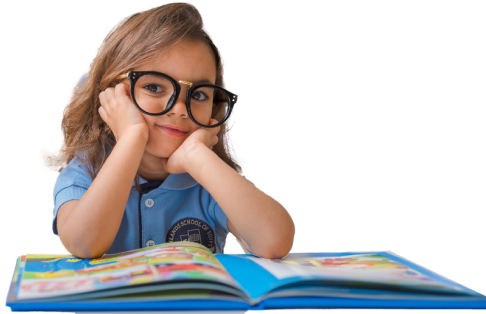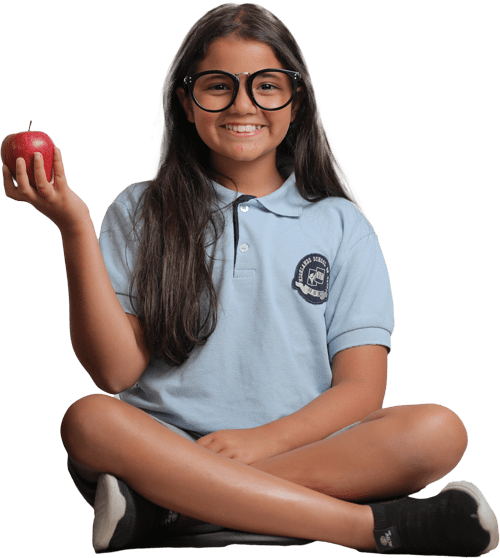Early Childhood
Our Early Childhood program for grades Pre-K, K and Grade 1 is designed according to Common Core standards. It is designed around a philosophy that young children learn best in a play-centered, developmentally appropriate environment. The program combines language arts, math, social studies, science, art, physical education, character education and music with a strong emphasis on language development. Classroom instruction is organized in each grade level around themes that are usually covered in one week depending on the attention span of the various ages. The teachers plan lessons that allow the children to develop large motor skills, coordination, listening and speaking skills and self-control in a comfortable, loving environment. Narrative reports are written to parents whom are encouraged to meet with teachers on regular and as needed basis.
Early Childhood and Grade 1 Curriculum
Our curriculum is based on the Common Core standards and consists of seven main key areas of learning:
English (phonics, reading, writing, listening, speaking, grammar)
Math (numeracy, geometry, measurements, probability, statistics, patterns, functions, algebra)
World Around Us (beginning science and social studies, body and health, seasons, weather, earth)
Physical education (personal fitness, healthy life-style, skilled movement, responsible behavior)
Expressive Arts (art, music, dance, theatre)
Computer Technology (technology, communication tools, computers)
Character Building/ life skills (social, personal and emotional development, living values, green living values).
At HSE our themes are designed to be introduced in play school and are extended to a higher and deeper level in Pre-K and K. The themes in each grade level are ordered in ascending difficulty and gradually scaffold to accommodate the developing skills of students and their abilities. Students are given the opportunity to start learning on a small scale about themselves and their close surroundings and move onwards to learning on a bigger scale about their community and people around them.
What shall I learn in Early Childhood?
First, and most importantly:
I will learn that being away from you - my parents – doesn’t mean that your love can’t reach me. I know this may take me some time.
I will learn that I can talk and work with teachers and other adults but I can’t talk to strangers.
I will learn to work with a large group of children and I should take turns, share and help.
I will learn simple rules and routines and to follow instructions.
I will learn to complete a task or an activity independently.
I will learn to ask questions until it makes sense to me.
I will learn to be independent, but not afraid to ask for help.
I will learn to select and choose and to make decisions sometimes.
I will learn to listen and share ideas and experience with others.
I will learn to do my best and not to give up.
I will learn that I am just perfect the way I am.
Areas of Development
Language and Communication Development
At HSE, there is a strong emphasis on the development of language and literacy skills. The area of language and literacy includes oral communication, reading, phonological awareness, listening and speaking and writing in their basic forms. Of-course children will achieve these different aspects at their own pace and will vary in their acquisition of different skills.
By the end of Early Childhood, children will be able to:
Communicate effectively by listening and speaking.
Demonstrate understanding of a variety of written materials that are read to them (e.g. leveled readers, decodable stories, big books, nonfiction readers).
Comprehend simple written materials (high frequency words, CVC words, signs, labels) using reading strategies that are appropriate for beginners.
Communicate thoughts and feelings using writing strategies that are appropriate for beginners. Use and respond to a variety of media materials.
Reading and Phonological Awareness
For learning the letter sounds at HSE, we use the Jolly Phonics program to teach the 42 main sounds of the English language, and not just the alphabet sounds. For each sound there is an action to help children remember the sound the letter makes.
Letters are introduced starting with those letters that are used most frequently and not in alphabetical order. The first group “s a t i p n” has been chosen because they make more simple three letter words than any other six letters. Then students will learn how to blend the sounds together. Sounds with more than one way of being written are first taught in one form only. For instance, the sound ”ai‟ (rain) is taught first, the alternatives „a-e‟ (cake) and „ay‟ (day) will be taught later.
Writing Skills
Learning Letter Formation: This goes parallel with the Jolly Phonics sequence. It is very important that children hold their pencils correctly. If a child’s pencil grip starts incorrectly it is very difficult to correct it later on. To make sure that students are holding the pencils correctly we might use the pencil grippers for a while. We don’t force students to write, we work on their fine motor skills until they are ready to write. Once the child is ready, we practice writing between the lines. Then we work on writing CVC words. Then they can write their own sentences using the high frequency words they have learnt. By end of K, they will be able to draw something and write two lines about it.
Identifying Sounds in Words : In order for a child to be able to write independently they need to be able to hear the letter sounds in a word and then write the letters for those sounds to make a word.
Tricky Words: Some words cannot be sounded out or spelled correctly by listening for the letter sounds in them. These words are called “Tricky Words” and have to be learned by sight. As children become more fluent at reading and writing, they will be taught how to cope with “Tricky Words.”
Finally this all sounds like a great deal of work, but it is learned in stages and is spread over a considerable period of time starting in play school and continuing through Pre-K and K.
Mathematical Development
Throughout the course of the EC years at HSE, your child can experience a wide variety of activities aiming at promoting confidence with numbers and other mathematical concepts.
By the end of Early Childhood, children will be able to:
Demonstrate understanding of sets and whole numbers.
Measure and compare the length, weight, mass, capacity, and temperature of objects, and demonstrate awareness of the passage of time.
Identify the characteristics of two-dimensional shapes and three dimensional objects.
Recognize and use patterns.
Collect, display, and interpret data in daily activities.
Show willingness to persevere in solving problems.
Complete simple addition and subtraction math sentences using objects in pre-K and using number line in (K), and mentally in grade one.
Intellectual Development (Science and Technology)
Early Childhood is where you can build a real critical thinker. Students practice observation, comparing/contrasting, categorization and sequencing skills, questioning and experimentation.
By the end of Early Childhood, children will be able to:
Demonstrate curiosity and inquiry using the scientific method and a willingness to explore and experiment.
Demonstrate understanding of and care for the nature.
Demonstrate an awareness of the characteristics and functions of some common materials.
Demonstrate understanding of strategies for planning and organizing “to do list/bucket list/mind map”.
Recognize and use some common forms of technology.
Social and Emotional Development:
In order to learn effectively, children must feel good about themselves, about school, and about others. A prime goal of Early Childhood is to foster social and emotional growth through play. Children practice socially appropriate behavior and develop self-help and problem solving skills to assist them in interacting with new people and situations. In Character Building we teach core values and green values throughout the year.
Our Golden Rules:
We are honest.
We are responsible.
We are sensible.
We are helpful.
We are kind.
We work hard.
We also teach them how to be a good citizen and how to develop belonging to their community. Our vision is to build role model citizens who can add to their community. We constantly apply this through community services field trips, and charity done by our super learners.
By the end of Early Childhood, children will be able to:
Demonstrate a positive attitude towards themselves and others.
Participate in whole group activities.
Demonstrate independence and willingness to take responsibility of their learning and other activities.
Follow and accept routines, instructions and school rules.
Demonstrate positive social skills such as respect rights of others, take turns and show self-control.
Work well independently and completes tasks.
Demonstrate an awareness of health and safety practices.
Make constructive use of time.
Physical Development
Through indoor and outdoor play, children use balls, hoops, water, sand and climbers, to strengthen large muscles “gross motor skills”. Fine motor skills enhance small muscle growth and coordination and include such activities as play dough, dough, manipulating stacking toys, picking up small objects with the tweezers, tooth picks, thumb and forefinger, tracing over simple shapes and designs.
Artistic Development
Art is taught within the Expressive Arts and Design area of learning. Children explore color, texture, shape, form and space in two and three dimensions, through a wide range of media such as play dough, clay and paints.
Music
Music is an integral part of all areas of the Early Childhood Stage curriculum, combining various areas of learning. Children will have opportunities to experience a wide range of musical experiences, such as: joining in with favorite songs, learning how musical instruments sound, imitating and creating movement in response to music and tapping out or creating simple, repeated rhythms. Creativity and enjoyment are very much part of Music at HSE and the Music Department is very well resourced.
By the end of Early Childhood, children will be able to:
Express ideas and feelings through a variety of media such as art, drama, role play, and writing.
Demonstrate understanding of “Experiment with techniques and materials”.
Cooperate and collaborate with others on artistic projects.
Demonstrate the skills acquired through music, art, drama, and dance.
Demonstrate awareness of some simple art forms from various cultures.
Respond to rhymed movement/game.
Identify different sounds and instruments.
Sing voluntarily and participate in choir activities.
Reading Strategy in HSE
Reading is our main goal as well as develop a reading passion in our students. HSE favorite quote is: A child who reads is a child who thinks. We really care about building good readers who are attached to books. We start implementing the reading habit as early as possible. We also have a cozy reading corner in each class and a very special reading hub in the activity room. We have our home reading program and our leveled readers besides our big books.
Levelled Reading
Leveled Readers for Guided Reading, or decodable stories, allow students to receive individualized practice alongside the core coursework. Teachers use a rubric sheet on a weekly basis to help students improve their reading level constantly, and to keep parents aware of their children’s reading level.
Before I Can Learn to Read I Need to:
Be enthusiastic about books.
Know what a book is. Know the front of the book.
Be able to look at the book from front to back.
Be able to tell a story from the pictures.
Know that print contains a message. The morals behind the story.
Know where to start reading.
Be able to follow print from left to right.
Be able to follow print from top to bottom.
Know what a letter is.
Know what a word is.
Be able to point to individual words while “reading‟.
Be able to memorize stories and rhymes.
So by end of Early Childhood in HSE we will hand you a super reader, a book friend and a little thinker.
Great Beginnings Start with Caring Staff and a Warm Environment…
Early Childhood teachers at HSE have a genuine love for young children. They show patience, kindness, and empathy toward their needs. They realize that a good Early Childhood teacher provides a warm and caring environment in which children feel secure in exploring the world around them. At the same time, the Early Childhood teachers at HSE help children develop a sense of responsibility and independence.
Early Childhood Class-time
The time children spend in Early Childhood class includes:
Circle Time:
At the beginning of each school day children assemble in a large group for storytelling, songs, games, and discussions. The focal point of this part of the day is literacy development, the growth of oral expression, and the fostering of interest in books and reading. The related language activities are; the daily calendar reading, recognizing class jobs, reading the daily schedule and the show and tell activities.
Learning Centers:
Much of the subject content in Early Childhood is pursued through activities at learning centers. Teachers modify the focus at various centers to accommodate the changing themes being taught, and the needs and interests of the class. Children may engage in small groups or individual play at learning centers. Some centers may be permanent and others short term. Learning centers may include reading, water, sand, crafts, blocks and other building tools, nature, puppets, dress-up, library, puzzles, and carpentry.
Assessment in Early Childhood
- Summative assessments are carried out 3 times a year (Fall, Spring & Summer).
- Social Studies and science are assessed through projects and observations.
- An assessor sits either one to one or in small groups to assess students.
Students are always observed and assessed formatively through ongoing written observations.










